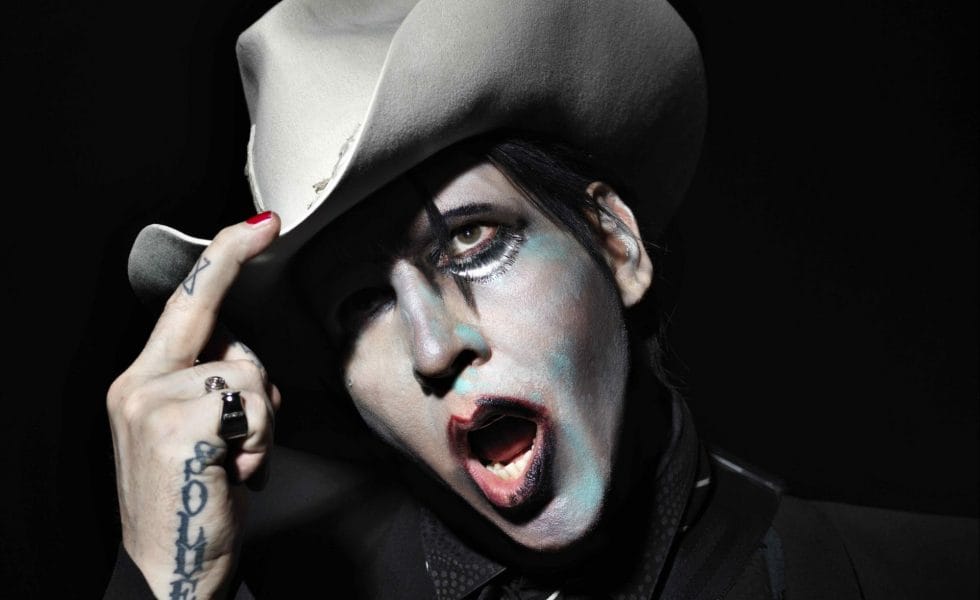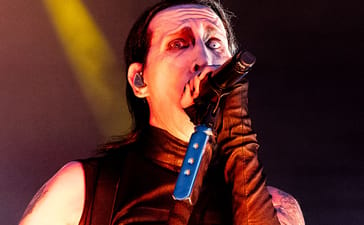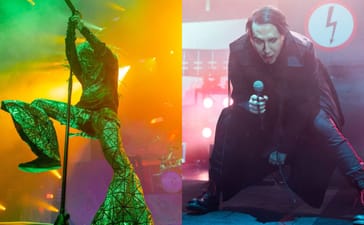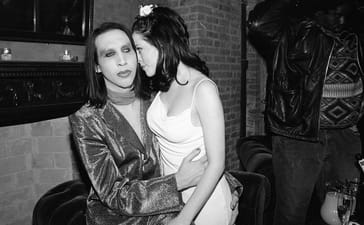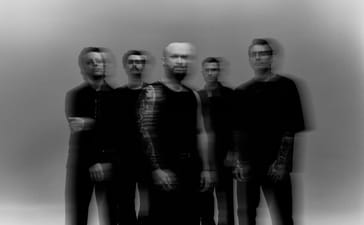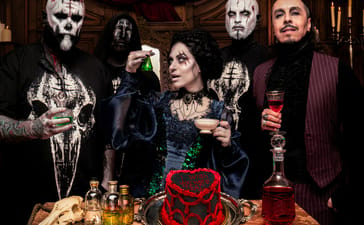When Halsey got a Marilyn Manson tattoo in Adelaide back in 2019, it was mostly regarded as an edgy move by a popstar widely revered for her alternative influence. But to a small handful of well-researched dissenters, it seemed like an odd choice. Why would a supposedly feminist artist ignore the allegations against Manson to that date? It goes to the wider issue of an industry that conveniently lumped red flags in with the inevitable criticism that comes with being a dark artist in the mainstream, which hopefully has finally reached its end with Manson’s ex-girlfriend Evan Rachel Wood accusing him of “horrifically” abusing her for years.
“The name of my abuser is Brian Warner, also known to the world as Marilyn Manson”, Wood declared. “He started grooming me when I was a teenager and horrifically abused me for years.” She adds that she was “brainwashed and manipulated into submission”, but is “done living in fear of retaliation, slander or blackmail. I am here to expose this dangerous man and call out the many industries that have enabled him, before he ruins any more lives.”
And enable him the industries most certainly have. When Dita Von Teese left Manson after a brief marriage, her words to the media were that: “You have to make a choice as to whether you’re going to respect yourself and say, ‘I’m not going to accept this. This is not okay.'” For some reason, everyone kept pretending that it was.
Other allegations since then have been casually skimmed over by most, bar Metal Hammer, who were bold enough to confront Manson before being abruptly hung up on. At the time, they had connected testimony from Evan Rachel Wood in 2019 to speculation that it was about her relationship with Manson. His PR team eventually shared their comments to the publication, citing Wood telling NetAPorter: “I appreciate everything he taught me. I just don’t think we were right for each other.” Meanwhile, Manson described his fantasies about Wood to Spin after their split, noting that they involved “smashing her skull in with a sledgehammer.” Apparently, that wasn’t problematic enough for us to call him out either.
“On the #MeToo movement, Manson described concerns that it “could ruin a lot of people’s lives that don’t need to be ruined.”
Of course, we understand from both history and psychology that victims of abuse are unlikely to come to terms with their trauma right away, which makes it a false interpretation that Wood’s comments are evidence of his good character. Speaking to the New York Times, Roderick MacLeish, a Boston lawyer who has represented hundreds of victims of abuse by Catholic priests and teachers, explains that victims “think that it was their fault, so in many cases they want continued contact…And then later they realize that it was for the perpetrator’s sexual gratification, and that’s devastating.”
And this is, at the crux of it, very similar to historical accusations levelled against priests and educators, in which a power imbalance exists based on status, be that earned by being a rockstar or a Cardinal. Given Manson’s historical remarks, he’s been conflicted about women coming forward with allegations for some time.
On the #MeToo movement, Manson described concerns that it “could really ruin a lot of people’s lives that don’t need to be ruined.” He added that he couldn’t turn on his “phone every day without someone being accused of something.” He goes on: “Maybe it’s all men are bad, or all men can’t do anything inappropriate. It makes you feel you can’t even say…I could look at her the wrong way and then I’m going to be accused of something wrong.”
The bottom line is, weren’t the signs all there? For now, Manson has been dropped by his label following the allegations, which continue to mount, but these questions need to be answered, and how we handle them scrutinised. If 2021 is to be the year of reckoning it’s shaping up to be, add to the list of answers sought: “Whom swings the cancel hammer, and when?”


